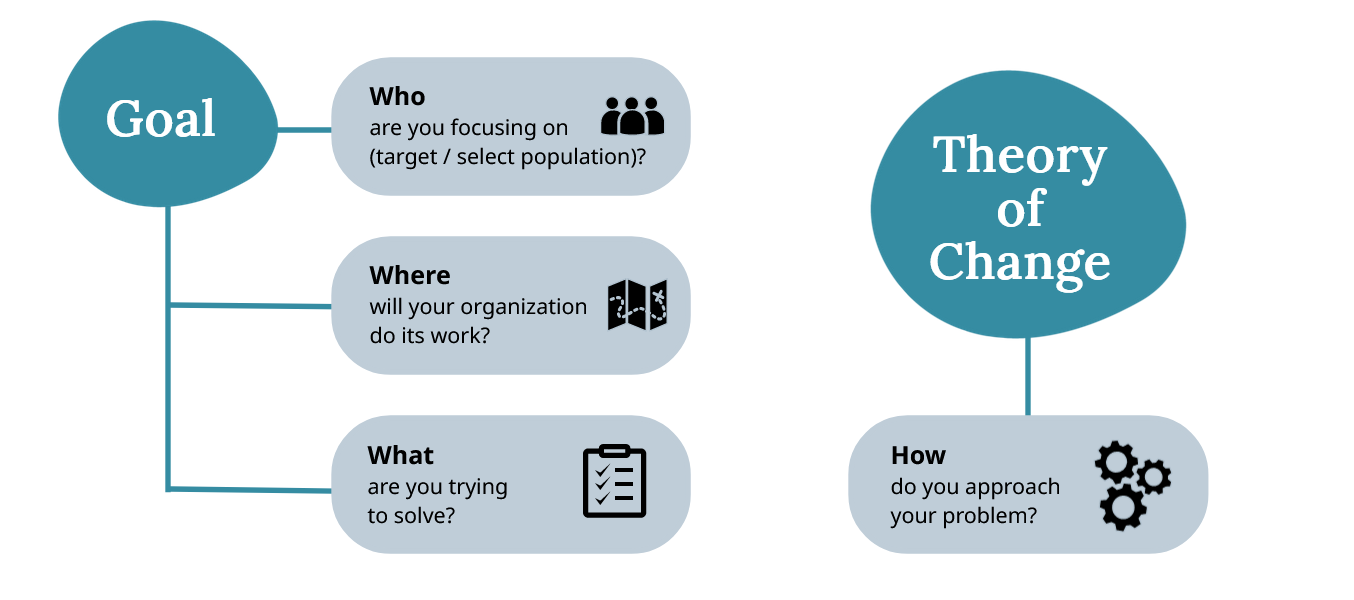Recommendations for Improving Leadership in Nonprofit Organizations
If you’re a nonprofit or philanthropic leader, you’ve no doubt been asked about impact. As a mission-driven nonprofit ourselves, we at CCL understand that impact is at the core of a nonprofit’s purpose. It demonstrates how our reason for being, our mission, and our work are positively influencing the communities we serve. In every nonprofit organization, there’s a need for effective leadership and program evaluation to fully realize our missions.
Without improving leadership in nonprofit organizations, we may struggle to craft a compelling vision, forge strategic partnerships, or adapt to changing times. We need evaluation data to tell the organizational story, communicate impact, secure resources, and guide decision-making. Nonprofits often seek to understand and measure this impact through various methods, including staff and program evaluation.
By default, we tend to keep leadership and program evaluation separate, but that can lead to a lack of cohesion and alignment within our organizations. It’s better to integrate the 2 for a more coordinated approach.
In this article, we’ll explore the powerful intersection of leadership development and program evaluation through the lens of 3 central themes that can be applied at both the individual and organizational level:
- Self-awareness
- Measurement
- Authenticity
Leverage Measurement: Conversations & Your Theory of Change
When we think about measurement in leadership, we often focus on tools like performance appraisals. While many organizations lean into this process and use quantitative data in their analysis, research shows that the most important part is the conversation itself. Conversations between leaders and their teams can uncover data that may not be uncovered in a traditional performance appraisal. We suggest using our Assessment – Challenge – Support (ACS)™ model to frame talent conversations. ACS helps create a dialog where leaders and team members discuss observations, feedback, opportunities, obstacles, and resources.
TAKE ACTION: Schedule a 1:1 talent conversation with your manager or teammate outside of a regular performance appraisal. Discuss how you each frame success in your role and use the time to create alignment on how you will measure achievement.
When it comes to your organization, measurement is essential. It helps you better understand your programs and properly request and use philanthropic funding. The best place to start is with your theory of change to provide a high-level view of your program and create a shared understanding of your work with stakeholders. It also clearly communicates the impact your organization makes.
At its core, a theory of change starts with your goals and then works backward to determine what outcomes must be in place to achieve those goals and, critically, how you’re going to get there. It identifies activities (“how”) that must occur to achieve the goals and creates the ability to evaluate change beyond just program outcomes. Like leadership talent conversations, a theory of change integrates both quantitative and qualitative data and how each outcome or goal intersects or depends on the others.

GO ONE STEP FURTHER: Theories of change are often seen as the domain of specialized teams or program managers. But just like leadership, evaluation is a social process. Gather a diverse team of both internal and external stakeholders, share the problem you’re trying to solve, and ask them, “How are we approaching this?” Getting different perspectives can help you understand the full picture.
Increase Authenticity: Revisit Values
As we gain self-awareness as leaders and organizations and use data and conversations to measure our impact, it’s crucial we do it authentically. Being authentic doesn’t mean sacrificing our personal values or organizational mission — in fact, it’s the opposite. Authenticity means being true to who you are and what you value and reflecting that in your actions.
For leaders, this means taking social identity mapping one step further and defining your core values so you live with intention. At the end of the day, what core values are driving you as a leader? Identifying and staying true to those is the key to authentic leadership, and in turn creating the impact you desire.
TAKE ACTION: Whether you use our Values Explorer™ tool or create your own list of values, start by narrowing down your top values to 10; then get it down to 5. Finally, determine your 3 core values — the ones you won’t compromise on, no matter what. All your values are important, but by making these tough choices, you’re defining what you’ll always stand up for. You can share those core values with others, so they understand who you are. And when something is bothering you, you can check if it’s going against one of those fundamental principles.
Determining your unshakeable values is a powerful exercise in boosting self-awareness. Knowing your true north is what allows you to lead authentically. It’s not about putting on a show — it’s about staying grounded in what matters most to you.
Organizations often define values as part of a strategic plan or mission refresh. When we do, we tend to focus on our aspirations. While this is important, being authentic as an organization (and as an individual) also means defining what we may not do quite so well. Be sure that your team understands your organization’s leadership drivers that determine your strategy and focus.
GO ONE STEP FURTHER: Take another look at your theory of change and examine your activities with transparency. Figure out what’s working and what’s not. And be willing to admit when your organization isn’t the best one to do a certain piece of the work. When that happens, actively seek out partners who can help you create the impact you want. It’s all about being honest with yourself and bringing in the right collaborators.
These themes — self-awareness, measurement, and authenticity — represent just 3 of the ways nonprofit leadership and evaluation intersect to create powerful change in organizations. By taking a holistic view of our work, from our people to our process to our community, we enable stronger organizations, and better work for — and with — the communities we serve.
Ready to Take the Next Step?
Equip your nonprofit leaders with essential tools, mindsets, and resources to create data-driven insights and practices that amplify impact and drive meaningful change. Explore Amplify™, our online nonprofit leadership training and evaluation program, created in partnership with the Edna McConnell Clark Foundation and the Scattergood Foundation.









